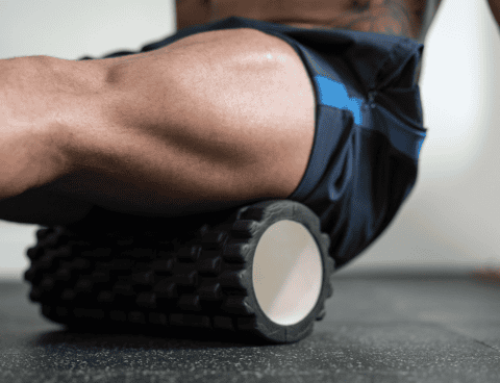![]()
If you’ve ever had to fly across time zones for a sporting event, you know about jet lag and the time disorientation. The disruption in your circadian rhythm and sleep cycle can seriously hinder your athletic performance, as jet lag can lead to dizziness and increased fatigue.
As a result, professional athletes are taking more steps to limit the effects of jet lag. But keeping travel from harming your performance is not limited to professionals. There are several things any athlete can do to ensure he or she is ready no matter where they are. Proper sleep, food and hydration can go a long way toward countering the effects of long-distance travel.
Few professional athletes log as many miles in so little time as NBA players. Their schedules can require them to fly from city to city, night after night. One of the best known examples is the San Antonio Spurs’ “Rodeo Road Trip.” Every February, the Spurs play on the road for about three weeks while their stadium plays host to the San Antonio Stock Show and Rodeo. In one stretch this season, the Spurs travelled from Phoenix to Sacramento, then to Salt Lake City the next day, then to Houston two days later. This kind of constant travel can take a toll on the unprepared
So how do NBA players prepare? They eat and drink well.
As Chris Winter, a sleep specialist who worked with the Oklahoma City Thunder, noted, jet lag affects our entire biological clock, not just our sleep schedule. The body becomes used to eating at times that don’t sync with the local time. For NBA athletes staying in another city for just a night or two, the best thing to do is to eat at their normal time instead of the local time.
So if you normally have dinner at 6 p.m. in California, and then travel to the East Coast for one or two days, have dinner at 9 p.m.
Furthermore, what you eat is just as important as when you eat. Protein-rich foods can help you sleep easier, as your body has to work to digest it. And since the interior of an airplane is a dry environment, it is critical to drink plenty of water both during and after the flight to prevent dehydration. Alcohol should be avoided for that reason as well.
Caffeine can help counteract jet lag, but there is just as much evidence that it could make jet lag worse.
All of these methods are used by NBA athletes. But due to the constrictions of the NBA schedule, they are unable to use one of the simplest methods to get rid of jet lag—arriving early. A great example is provided by the Indian National Olympic Team, which announced plans to send its athletes to Rio a month in advance of the 2016 Summer Games, instead of the customary two days. India’s sports ministry explicitly stated that “If the players land in Rio a day or two in advance, they will be tired and suffering from jet lag.”
You do not have to arrive a month in advance of a long-distance sporting event. But jet lag can last up to four or five days if you travel overseas, or up to three days if you travel from San Francisco to New York City. You need to get many restful nights of sleep to catch up. If you have sleep apnea, invest in a stop-snoring device so you don’t disrupt the sleep of your teammates during flight. Arrive several days in advance and train at the venue where you will be performing so you can work off the effects of jet lag. This strategy also lets you become accustomed to the foreign venue, which always has slight differences from where you practice.
Although jet lag can be tough to work through, it is not all that detrimental to your performance. The journal Sports Health concluded that “jet lag appears to have a significant effect on performance in most situations.” But it also noted several situations where traveling long distances did not seem to crucially impact performance.
So though those few hours or days after travelling across several time zones can be difficult, jet lag is not that hard to overcome. If you are staying for just three days, it may be best to stick to your internal body clock instead of trying to adjust to the local time.
Circumstances vary from event to event, but as long as you sleep, eat and drink well, that should be enough to counteract the worst effects of jet lag.

RECOMMENDED FOR YOU
MOST POPULAR
![]()
If you’ve ever had to fly across time zones for a sporting event, you know about jet lag and the time disorientation. The disruption in your circadian rhythm and sleep cycle can seriously hinder your athletic performance, as jet lag can lead to dizziness and increased fatigue.
As a result, professional athletes are taking more steps to limit the effects of jet lag. But keeping travel from harming your performance is not limited to professionals. There are several things any athlete can do to ensure he or she is ready no matter where they are. Proper sleep, food and hydration can go a long way toward countering the effects of long-distance travel.
Few professional athletes log as many miles in so little time as NBA players. Their schedules can require them to fly from city to city, night after night. One of the best known examples is the San Antonio Spurs’ “Rodeo Road Trip.” Every February, the Spurs play on the road for about three weeks while their stadium plays host to the San Antonio Stock Show and Rodeo. In one stretch this season, the Spurs travelled from Phoenix to Sacramento, then to Salt Lake City the next day, then to Houston two days later. This kind of constant travel can take a toll on the unprepared
So how do NBA players prepare? They eat and drink well.
As Chris Winter, a sleep specialist who worked with the Oklahoma City Thunder, noted, jet lag affects our entire biological clock, not just our sleep schedule. The body becomes used to eating at times that don’t sync with the local time. For NBA athletes staying in another city for just a night or two, the best thing to do is to eat at their normal time instead of the local time.
So if you normally have dinner at 6 p.m. in California, and then travel to the East Coast for one or two days, have dinner at 9 p.m.
Furthermore, what you eat is just as important as when you eat. Protein-rich foods can help you sleep easier, as your body has to work to digest it. And since the interior of an airplane is a dry environment, it is critical to drink plenty of water both during and after the flight to prevent dehydration. Alcohol should be avoided for that reason as well.
Caffeine can help counteract jet lag, but there is just as much evidence that it could make jet lag worse.
All of these methods are used by NBA athletes. But due to the constrictions of the NBA schedule, they are unable to use one of the simplest methods to get rid of jet lag—arriving early. A great example is provided by the Indian National Olympic Team, which announced plans to send its athletes to Rio a month in advance of the 2016 Summer Games, instead of the customary two days. India’s sports ministry explicitly stated that “If the players land in Rio a day or two in advance, they will be tired and suffering from jet lag.”
You do not have to arrive a month in advance of a long-distance sporting event. But jet lag can last up to four or five days if you travel overseas, or up to three days if you travel from San Francisco to New York City. You need to get many restful nights of sleep to catch up. If you have sleep apnea, invest in a stop-snoring device so you don’t disrupt the sleep of your teammates during flight. Arrive several days in advance and train at the venue where you will be performing so you can work off the effects of jet lag. This strategy also lets you become accustomed to the foreign venue, which always has slight differences from where you practice.
Although jet lag can be tough to work through, it is not all that detrimental to your performance. The journal Sports Health concluded that “jet lag appears to have a significant effect on performance in most situations.” But it also noted several situations where traveling long distances did not seem to crucially impact performance.
So though those few hours or days after travelling across several time zones can be difficult, jet lag is not that hard to overcome. If you are staying for just three days, it may be best to stick to your internal body clock instead of trying to adjust to the local time.
Circumstances vary from event to event, but as long as you sleep, eat and drink well, that should be enough to counteract the worst effects of jet lag.












